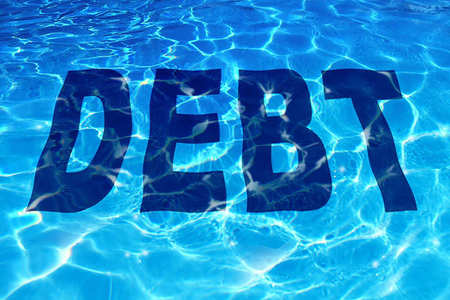
Last month we featured an article that provided a general overview of the types of bankruptcy available to debtors who have hit hard financial times. We addressed the fact that despite the purpose of bankruptcy, that it is supposed to be a mechanism for giving the debtor a chance for a “fresh start,” the ramifications of declaring bankruptcy are far reaching and drastic, to say the least.
The article made the following points:
Debtors facing foreclosure and/or excessive debts are too often under the misconception that declaring bankruptcy is the perfect solution to these problems. Bankruptcy stays put on your credit record for quite a long time making advancing in life incredibly difficult. In addition, the updated bankruptcy law, passed in 2005, includes severe restrictions that make it more complicated to file for bankruptcy.
What this follow-up article hopes to achieve is to shed some light on the types of debts that are not eligible to be discharged in bankruptcy. As noted by The Simple Dollar, it’s important to understand that bankruptcy is not the cure-all to your financial problems, and that not all debts are eligible to be discharged in bankruptcy. For example, If you owe back taxes or child support, bankruptcy will not be able to help you.
Simply put: non-dischargeable debts are debts that don’t go away when you file for bankruptcy.
As The Bankruptcy Site notes, neither Chapter 7 nor Chapter 13 gives you a perfectly clean slate. Yes, many kinds of debts can be wiped clean, but in both scenarios, some debts cannot be eliminated.
Lawyers.com gives the following list of debts that will not magically disappear when you declare bankruptcy:
Debts Incurred After You File Bankruptcy
Any debt you have before you file for bankruptcy will go away (get wiped out) as long as it’s dischargeable. But, after you file—even while the bankruptcy case is still pending—debts you incur remain yours.
Secured Loans
A common question potential bankruptcy filers ask is whether it’s possible to keep a house or car after filing. The answer is yes—as long as you continue to make the payments. Mortgages and car payments are common examples of what are called “secured” debts. Any time you promise to give back the purchased property if you don’t make your payments, you have a secured loan. Secured loans are non-dischargeable in bankruptcy (unless you give the property back).
Unsecured Priority Debts
Bankruptcy wipes out most unsecured debt, but it doesn’t eliminate “priority” unsecured debt. There’s almost no way to get rid of priority debts. They also get paid before other unsecured debts if money is available to pay creditors. Here are some examples of unsecured priority debts.
- Domestic Support Obligations
Your spousal support or child support payments aren’t dischargeable in bankruptcy. Child and spousal support generally encompass amounts necessary for the child or former spouse to meet basic living requirements. Money owed as a result of a marital property division is different than this kind of support—in some states it’s dischargeable.
- Income Taxes
Bankruptcy crosses lots of minds when the tax man cometh. While it isn’t impossible to discharge unpaid income tax debt, it’s tough to meet the requirements.
- Other Government Debts
Like taxes, many debts owed to the government (such as fines and penalties) are going to stay with you till the grave. But not all. If you aren’t sure how a given government debt will be treated, a bankruptcy attorney can assist you.
- Student Loans
Even though student loans aren’t “priority” unsecured debts, you can’t get rid of them in bankruptcy—that is, unless you can demonstrate that you have an “undue hardship.” A disability that prevents you from working can qualify as an undue hardship.
Debt From Fraud, False Pretenses, and False Representation
Trying to work the system can come at a steep price. One consequence might be your debt not being discharged. The trick here is that debts resulting from fraud, false pretenses, or false representation are dischargeable unless your creditor files a lawsuit in the bankruptcy case, called an “adversary proceeding.”
Debts You Didn’t List in Your Asset Case
Contrary to common belief, “not including a debt in bankruptcy” isn’t an option. You’re required to list all of your debts when you file for bankruptcy. If your case is an asset case (one where there is money to distribute to creditors), and you fail to list a debt, the omitted debt is non-dischargeable.
Examples of Other Debts That Are Never Discharged
- Child support and alimony
- Fines, penalties, and restitution you owe for breaking the law
- Debts arising out of someone's death or injury as a result of your intoxicated driving.
Between the discussion in last month’s and the current month’s articles on bankruptcy, it should be obvious that we are dealing with subject matter that is highly complex.
The bottom-line action point, however, is simple: If you happen to be entertaining the idea of filing bankruptcy, we recommend you engage the counsel of on attorney who specializes in bankruptcy matters.
